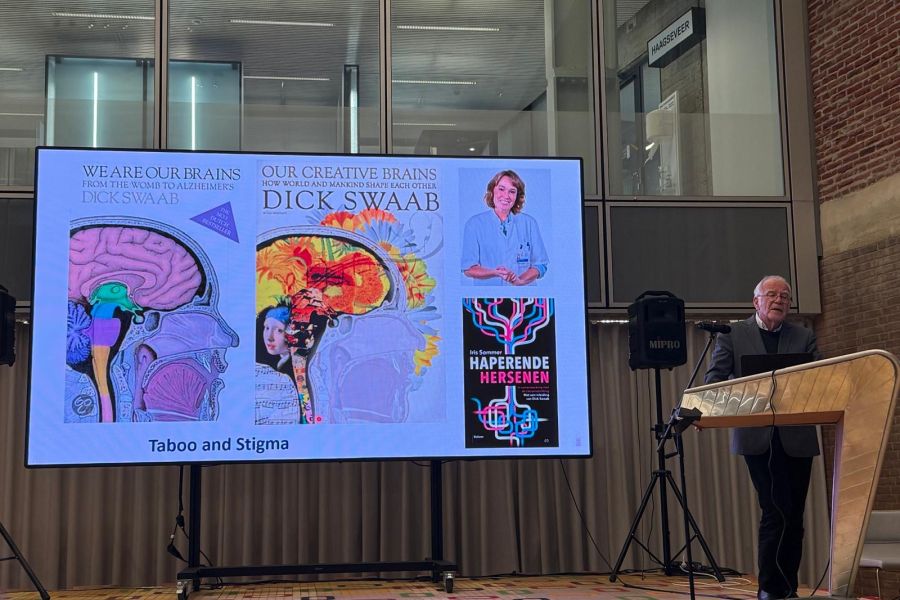Antonia Kleinhoonte Lifetime Achievement Award presented to Prof. Dick Swaab at the Dutch Chronobiology Meeting

Each April, the BioClock Consortium organizes a national conference to bring together chronobiologists from across the Netherlands to share scientific findings and inspire one another. The third edition of the Dutch Chronobiology Meeting took place this past Monday in the auditorium of Rotterdam’s City Hall, hosted by the Municipality of Rotterdam—one of BioClock’s partners.
Almost every field within chronobiology was represented. A colorful mix of brain researchers, sleep scientists, immunologists, intensive care professionals, ecologists, biologists, nutrition scientists, lighting designers, and behavioral experts attentively followed the rich and varied program.
The program included four scientific lectures by Prof. Mariana Astiz (Achucarro Basque Center for Neuroscience in Leioa, Spain), Dr. Andrés Romanowski (Timing of Environmental Signalling Lab, Wageningen University), Prof. Dick Swaab (Professor emeritus of neurobiology and former director of the Netherlands Institute for Brain Research, Amsterdam), and Prof. Yvonne de Kort (Environmental Psychology of Human-Technology Interaction, Eindhoven University of Technology – TU/e). These were complemented by the latest insights from PhD candidates and postdocs, selected via abstract submission, and a lively poster session where young researchers were able to discuss their work with peers.
In recognition of his tremendous contribution to making brain research and circadian rhythms more accessible to the public, BioClock project lead Prof. Johanna Meijer presented the Antonia Kleinhoonte Lifetime Achievement Award to Prof. Dick Swaab. A well-deserved honor. A video of Prof. Johanna Meijer’s speech to Prof. Swaab can be viewed at the bottom of this article.
Additionally, the Antonia Kleinhoonte Award for Best Abstract Presentation was awarded to Sen Zhang from Leiden University Medical Center for his poster on the optimal timing of physical activity to combat liver disease. The jury evaluated not only the scientific merit but also the accessibility, visual design, and overall presentation. A well-earned win!


(Through the Antonia Kleinhoonte Awards, we aim to highlight the origins of chronobiology in the 1930s, when Kleinhoonte—one of the few women in science at the time—discovered biological rhythms in plants.)
Research in chronobiology focuses on raising awareness and sharing knowledge about the significant influence of biological rhythms in healthcare, society, and nature. Research across each of these domains reinforces and inspires the others, as rhythms in living organisms play a far greater role than we once thought.

The BioClock Consortium is funded by the NWA-ORC programme of the Dutch Research Council (NWO; project number 1292.19.077).